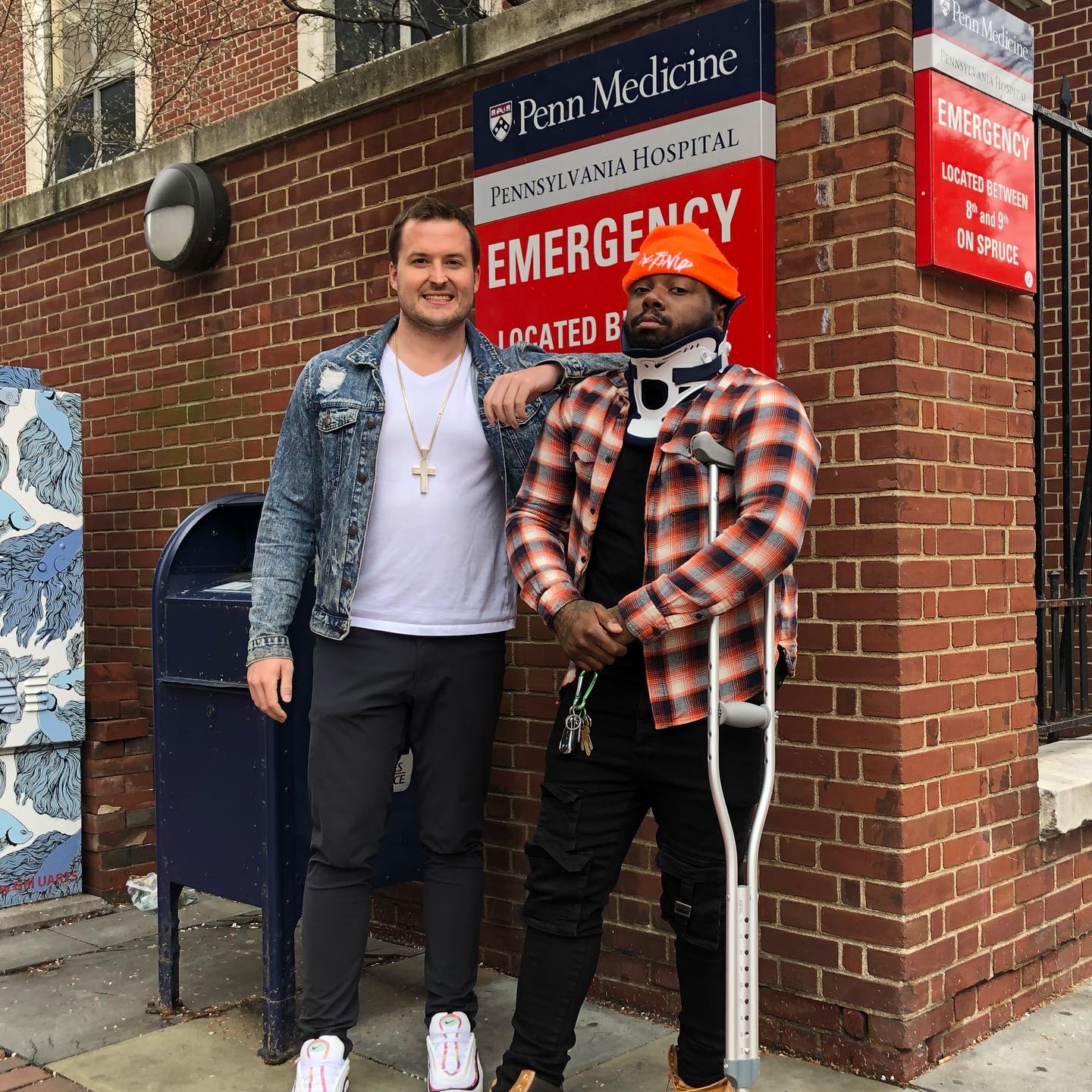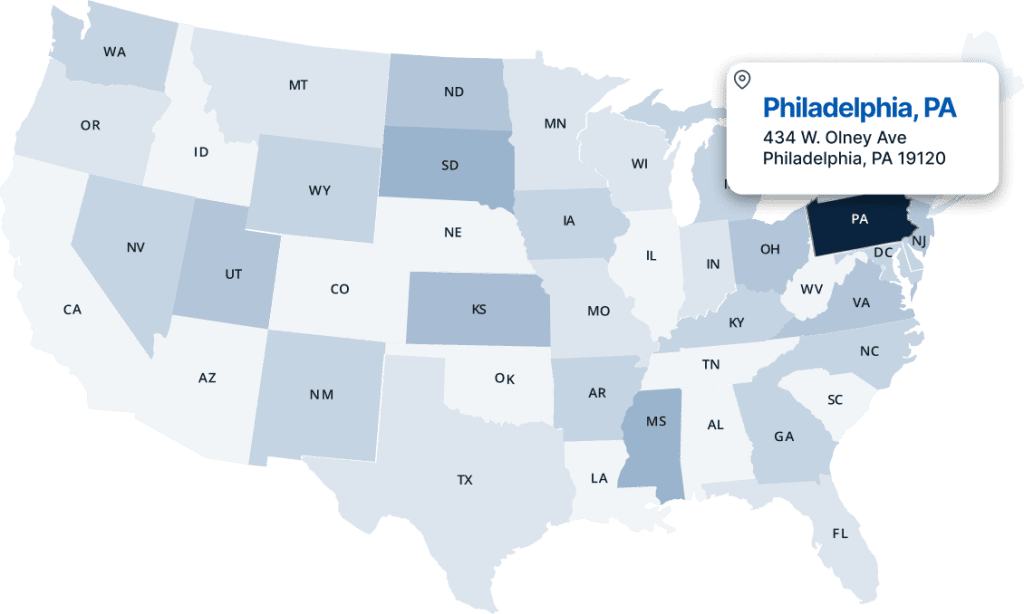Home » Truck Accident Lawyer » Missouri Truck Accident Lawyer » Kansas City, MO Truck Accident Lawyer
If you were injured in a commercial truck accident in Kansas City, you have the right to seek payment for your injuries and financial losses. But a collision with an 80,000-pound semi-truck is not like a typical car wreck. It involves a web of federal and state regulations, multiple liable parties, and insurance policies worth millions.
If you’ve suffered a truck accident, you might be wondering:
Trucking companies have investigators on the scene within hours, building a case to protect their business. Their goal is to balance paying claims with making a profit. You need someone on your side from the very beginning.
At TopDog Law, our network of local truck accident attorneys understands Missouri’s trucking laws and the tactics companies use. We connect you to a Kansas City, MO truck accident lawyer who can answer your questions and build a powerful claim for you.
For a free review of your case, call (816)451-4669.

The injuries are typically more severe, the medical bills pile up faster, and the legal path to getting them paid is filled with unique hurdles. A lawyer experienced in these specific cases anticipates these challenges and prepares for them from day one.
Trucking companies and their insurers dispatch teams of investigators and lawyers the moment a crash is reported. They are not there to help you. They conduct a thorough investigation, looking for any evidence to argue you were at fault. Your lawyer’s role is to keep them accountable and ensure no amount of blame is unjustly put on you.
An attorney on your side works to level the playing field by launching an independent investigation to preserve evidence before it disappears.
A local lawyer knows what to look for and how to get it, fast. This includes:
Liability in a truck wreck is rarely simple. The investigation might uncover that several parties share the blame. An experienced attorney will trace the chain of events to identify all responsible parties, which could include:
A Third-Party Maintenance Shop: If they performed careless or incorrect repair work.

After a serious collision, one of the biggest worries is how to manage the growing stack of bills. A personal injury claim is designed to cover every loss the accident caused, both the ones with a clear price tag and the ones that are harder to measure.
These are the direct, out-of-pocket expenses that have piled up because of your injuries. A detailed claim will account for every single one, backed by bills, receipts, and expert analysis. These damages include:
Not all losses are financial. These damages are meant to compensate you for the ways the accident has impacted your quality of life. Though more subjective, they are just as real. They include:
Missouri law follows a rule called pure comparative fault. This simply means your final compensation is reduced by whatever percentage of fault you are assigned for the accident.
Trucking companies and their insurers will work hard to shift as much blame as possible onto you to lower their payout. A lawyer’s job is to build a case that protects you from unfair accusations and preserves your right to full compensation.
Kansas City sits at a national crossroads, making it a powerhouse for shipping and logistics. That distinction comes at a cost: a huge volume of commercial trucks sharing the road with local drivers. This heavy traffic creates high-risk areas where serious collisions happen with alarming frequency.
These locations are known hotspots for devastating truck accidents:
Beyond specific locations, certain regional conditions increase the risk of truck accidents:
A collision with a commercial truck is governed by a dense set of safety regulations. When a trucking company or its driver breaks these rules, it is a clear sign of negligence that could be used to build a stronger case for you.
An investigation frequently points to one or more of these factors:

The trucking industry is regulated by the Federal Motor Carrier Safety Administration (FMCSA) and Missouri state laws. These rules cover everything from driver qualifications and insurance minimums to vehicle maintenance and cargo securement. For example, the FMCSA has strict Hours of Service regulations that dictate how long a driver can operate a truck before taking a mandatory rest break.
In Missouri, you generally have five years from the date of the accident to file a personal injury lawsuit. While that sounds like a long time, waiting is a mistake. Key evidence like black box data and driver logs can be lost or destroyed. Witness memories fade. The sooner an investigation begins, the better the chances of building a successful claim.
Your story matters. But in a truck accident case, your story alone isn’t always enough.
To get a fair result, your lawyer may need to bring in expert witnesses—specialists who can explain how the crash happened, why it happened, and what it means for your future. In many cases, they’re the ones who give juries and insurance adjusters the clarity they need to see the full picture.
When two vehicles collide, especially when one of them weighs 80,000 pounds, figuring out exactly what happened isn’t simple.
An accident reconstructionist analyzes physical evidence, like skid marks, black box data, debris spread, road geometry, and vehicle damage, to piece together a detailed timeline of the crash. They may use software to recreate the scene as a visual model. This helps answer key questions:
Federal regulations control nearly every part of the trucking industry, from how long a driver can be on the road to how loads are secured. But these rules are dense. And unless someone knows them inside out, it’s easy to miss where a violation occurred.
A trucking industry expert reviews records to determine if the company or driver broke those rules. For example:
If the answer is yes to any of these, the expert explains what rule was broken and how that contributed to the crash.
Your medical records show that you were hurt. But they don’t always explain the extent of those injuries, or how they might affect your future.
That’s where medical experts come in. Depending on the injury, your lawyer may work with:
Some injuries never fully heal. If that’s the case, your claim must account for everything your future might require: home health aides, physical therapy, prescriptions, mobility equipment, home modifications, and more.
A life care planner builds that roadmap. They meet with your treating doctors, look at your test results, and consult with your family to understand your daily needs. Then they calculate the projected costs of that care, broken down line by line.
Some injuries change your job prospects forever. Maybe you can’t lift heavy objects anymore. Maybe you can’t sit or stand for long periods. Maybe chronic pain keeps you from focusing the way you used to.
A vocational expert assesses whether you can return to your old job, and if not, what other work might be possible for you. They also compare what you earned before the crash to what you could earn now. That difference is known as diminished earning capacity, and it often forms a major part of the damages calculation in a serious injury claim.
Not always. But if your attorney believes expert testimony would strengthen your claim, they’ll handle the entire process: identifying the right professionals, coordinating their review of the evidence, and ensuring their findings support the legal strategy.
Your top priority is safety and health. If possible, move to a safe location away from traffic, call 911 to report the accident and request medical assistance, and accept emergency medical care.
After addressing your immediate health needs, avoid giving a recorded statement to any insurance adjuster until you receive legal advice.
The attorneys in our network handle personal injury cases on a contingency fee basis. This means you pay no upfront costs or hourly fees. The lawyer receives a percentage of the compensation they recover for you. If you do not win your case, you owe no attorney fees.
No. The insurance adjuster's job is to protect their company's interests, which often means minimizing the amount they pay you on a claim. They may use your statements against you later. You can politely decline to provide a recorded statement and refer them to the attorney handling your case.
Insurance adjusters work for a business, and their job is to protect the company's financial interests. A quick offer is often an attempt to settle your claim for less than its full value before you know the long-term costs of your injuries. It's always best to have a legal professional review any offer before you accept it.
The time it takes to resolve a truck accident claim depends on the specifics of the case. An attorney's goal is to manage the legal process efficiently while you focus on your recovery. The most important step is starting quickly to preserve evidence and protect your rights.
Even if the driver is an owner-operator, the trucking company they were driving for may still be held responsible. Legal concepts like negligent hiring (if they hired an unsafe driver) or vicarious liability might apply. An attorney will investigate the relationship to identify every liable party.
If a defective part, like a faulty brake system or a tire that blew out, was the cause, a product liability claim might be filed against the part's manufacturer. This can be pursued alongside a claim against the driver or trucking company.
They frequently include traumatic brain injuries (TBIs), neck and spinal cord damage, broken bones, and serious internal injuries.
You do not have to face the legal process alone after a serious truck accident. TopDog Law connects you with an experienced Kansas City, MO personal injury lawyer who is ready to help you pursue the compensation you need to move forward.
Call (816)451-4669 to discuss your case today.
TopDog Law is known for its relentless pursuit of justice. Our experienced team fights tirelessly to secure maximum compensation for our clients, ensuring every case is handled with dedication and determination.
We understand the emotional and financial toll that personal injuries can take. That’s why we prioritize open, compassionate communication and provide tailored support throughout the legal process. With free consultations and a contingency fee model, you won’t pay a dime unless we win your case.
With TopDog Law on your side, you can rest assured that you have a tenacious, experienced team fighting to get you the compensation you deserve, no matter where you’re located.

TopDog Law is a national marketing network for law firms, including Helm Law Group, LLC, which license the TopDog Law name and separately operate in states where they are each licensed. James Helm is licensed to practice in Arizona and Pennsylvania. Helm Law Group, LLC operates in Arizona.
3225 Cumberland Blvd, Ste 100
Atlanta, GA 30339
1 South St, Suite 2125A
Baltimore, MD 21202
950 22nd Street N. Suite 600
Birmingham, AL 35203
361 Newbury Street, 3rd Floor
Suite 310
Boston, MA 02115
305 E 204th St.
Bronx, NY 10467
215 E 5th St, Unit 1 Suite 400-3
Brooklyn, NY 11218
1207 Delaware Ave, Suite 012
Buffalo, NY 14209
101 N Tryon St. Suite C
Charlotte, NC 28246
6343 S Western Ave.
Chicago, IL 60636
2215 E 9th St, Suite A
Cleveland, OH 44115
4750 44th Place, Suite 120-P23
Phoenix, AZ 85040
1300 S Polk St Suite 295B
Dallas, TX 7522
66 S Logan St Suite B
Denver, CO 80209
645 Griswold Street, Suite 1309
Detroit, MI 48226
2925 Richmond Ave., Suite 1560A
Houston, TX 77098
863 Massachusetts Ave 2nd floor Suite B
Indianapolis, IN 46204
317 E Capitol St suite 200C
Jackson, MS 39201
1701 Troost Ave suite 202b
Kansas City, MO 64108
#8 Shackleford Plaza, Suite 304
Little Rock, AR 72211
8124 W 3rd St, Suite 201
Los Angeles, CA 90048
3385 Airways Blvd Unit 301F
Memphis, TN 38116
1433 N Water St Suite 400D
Milwaukee, WI 53202
600 Mount Prospect Avenue, Suite A
Newark, NJ 17104
66 Franklin St, Suite 300C
Oakland, CA 94607
5627 Germantown Ave Suite 420
Philadelphia, PA 19144
2700 N Central Ave Suite 320B
Phoenix, AZ 85004
6425 Living Place, Suite 200B
Pttsburgh, PA 15206
920 West Sproul Road, Suite 201
Springfield, PA 19064
4625 Lindell Blvd Suite 200 & 300C
St. Louis, MO 63108
5055 E Broadway, Suite C215-228
Tuscon, AZ 85711
1150 Connecticut Ave NW, Suite 802B
Washington, DC 20036
6832 W North Ave Suite 2A
Chicago, IL 60707
3509 Haverford Ave, Suite 102
Philadelphia, PA 19104
Copyright 2025 All Rights Reserved © TopDog Technologies, Inc. and Helm Law Group, LLC
403 Olde House Lane Media, PA 19063
